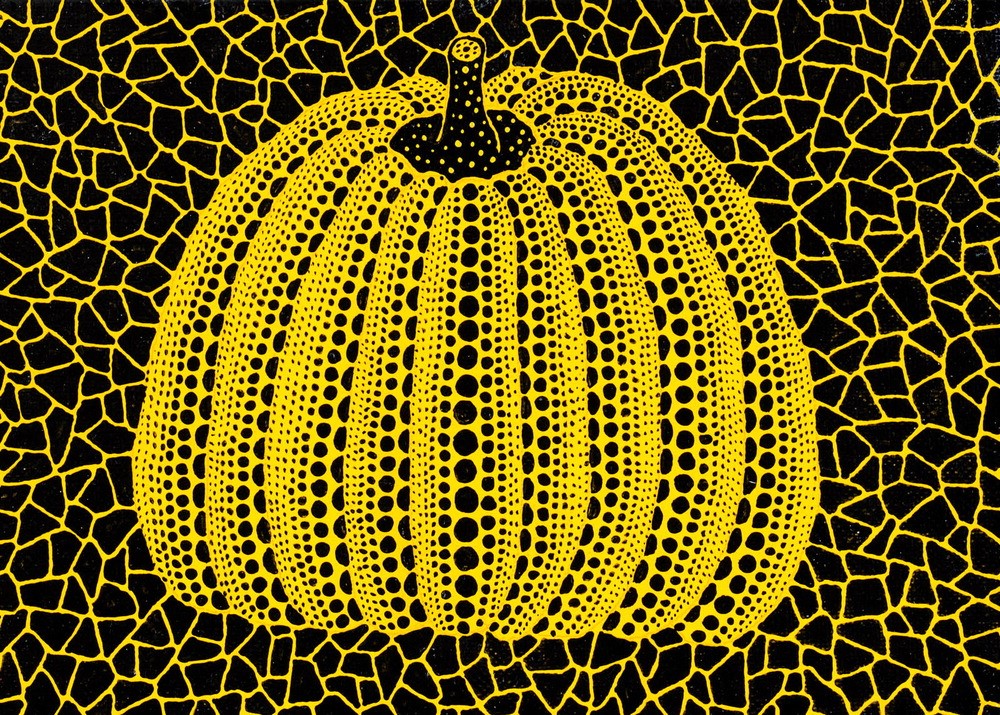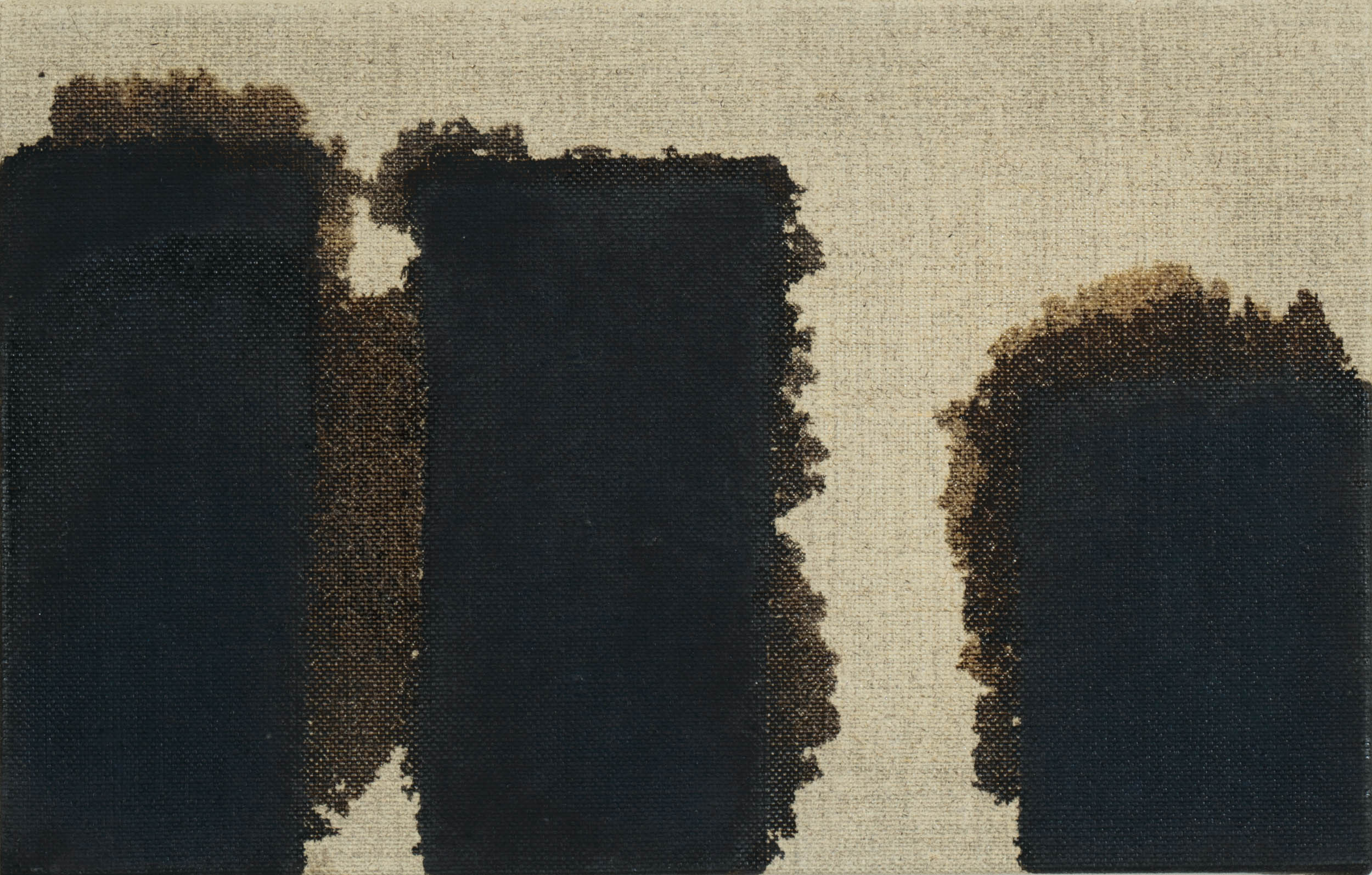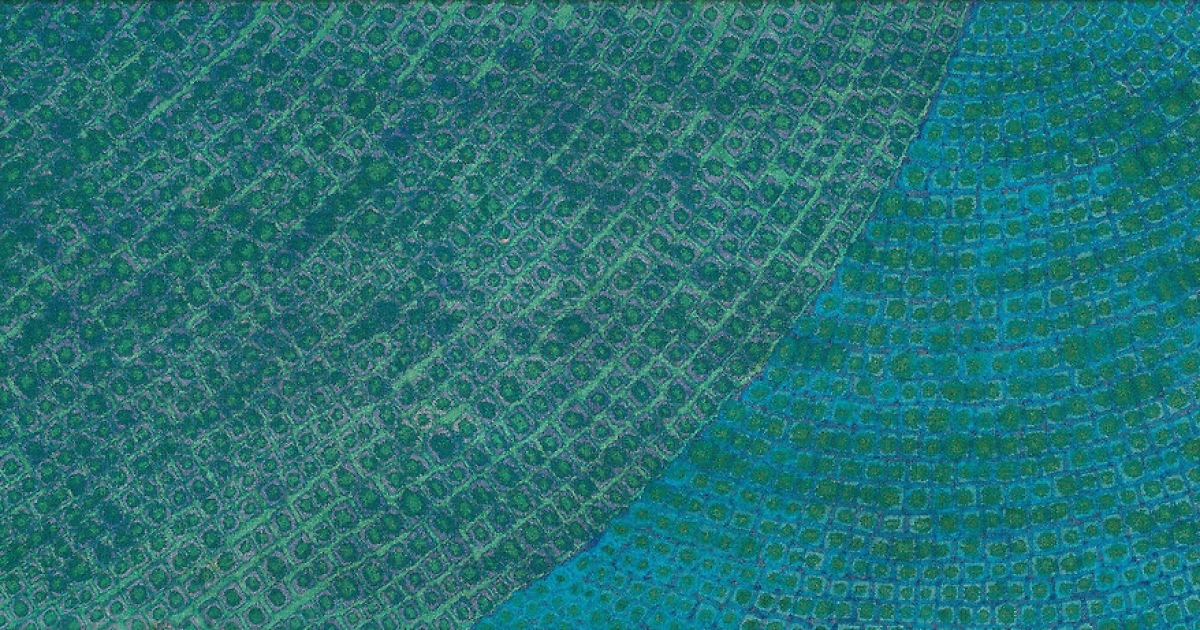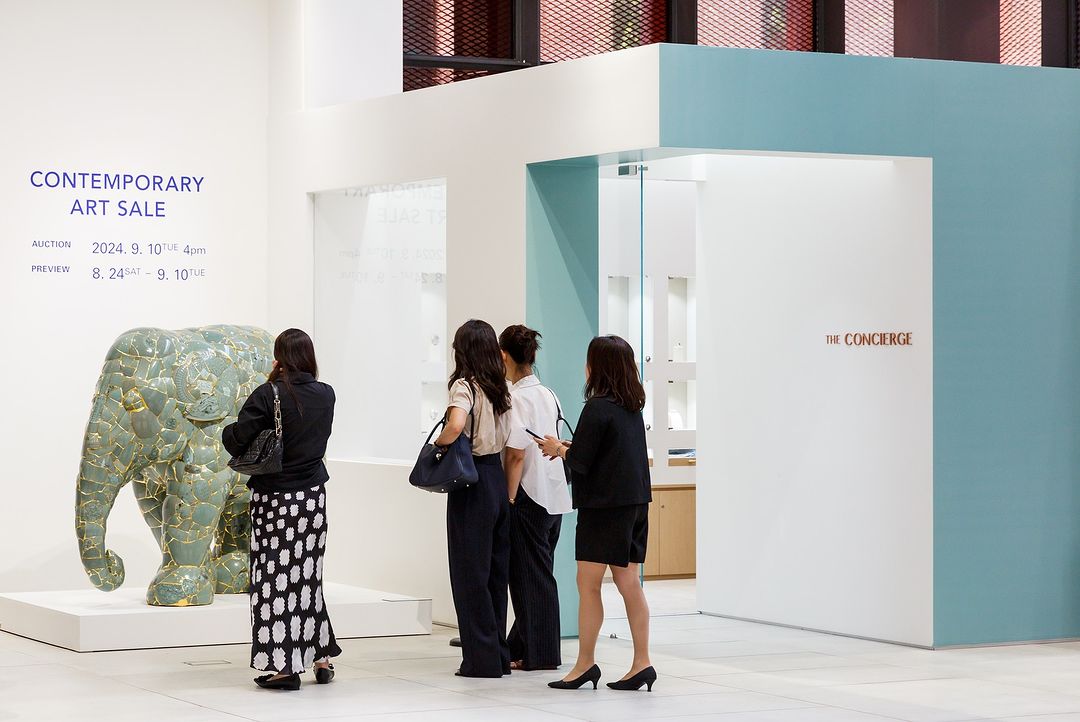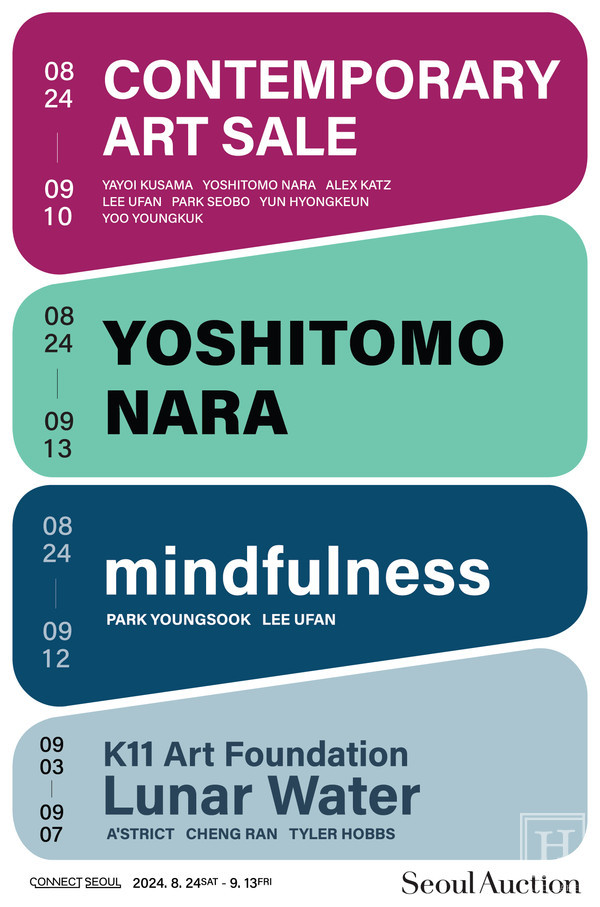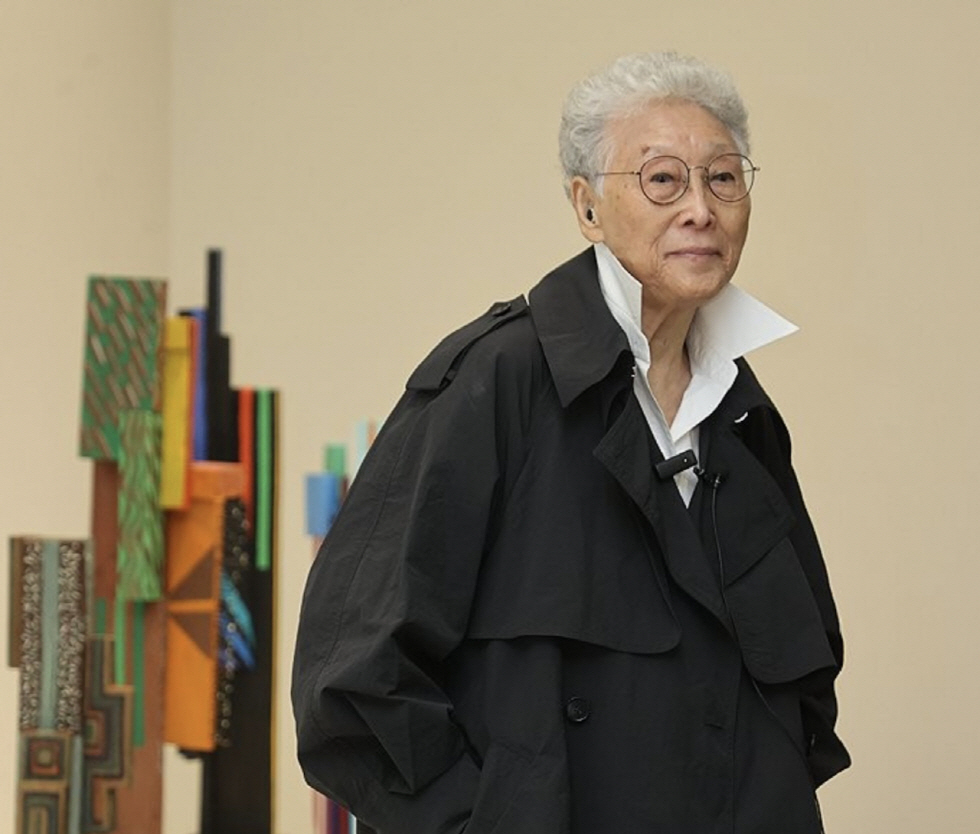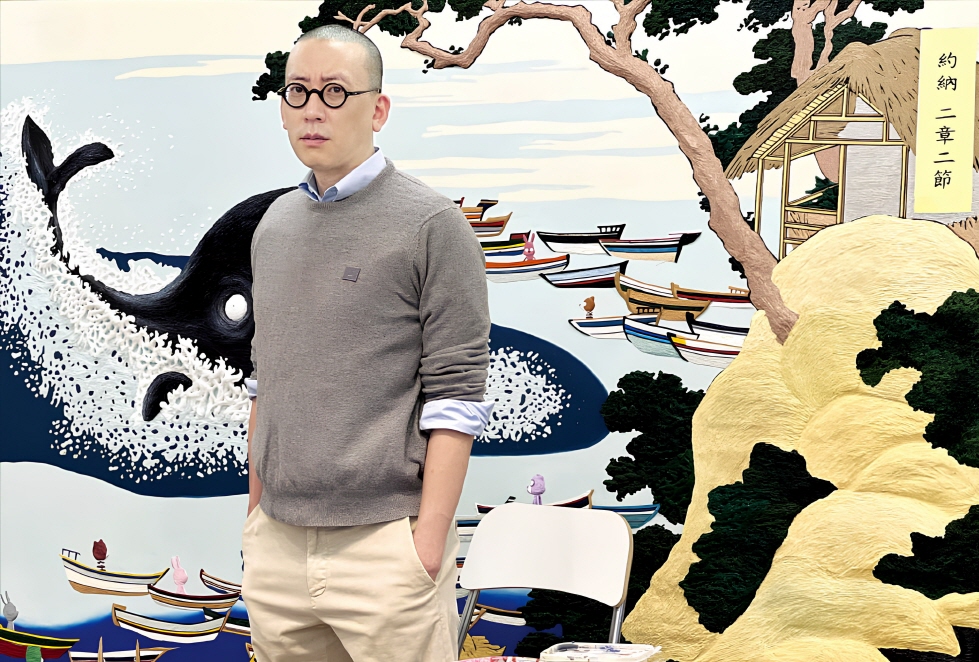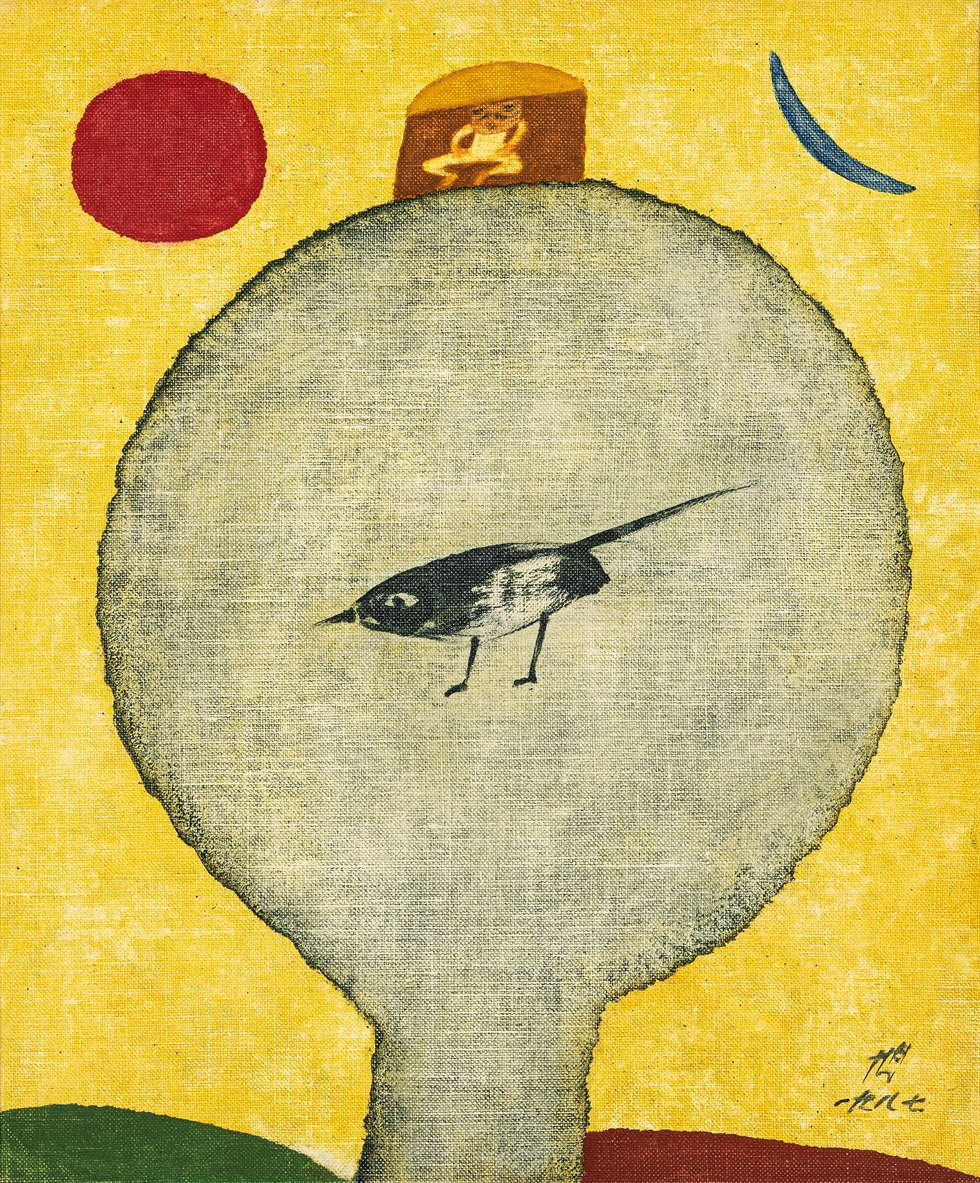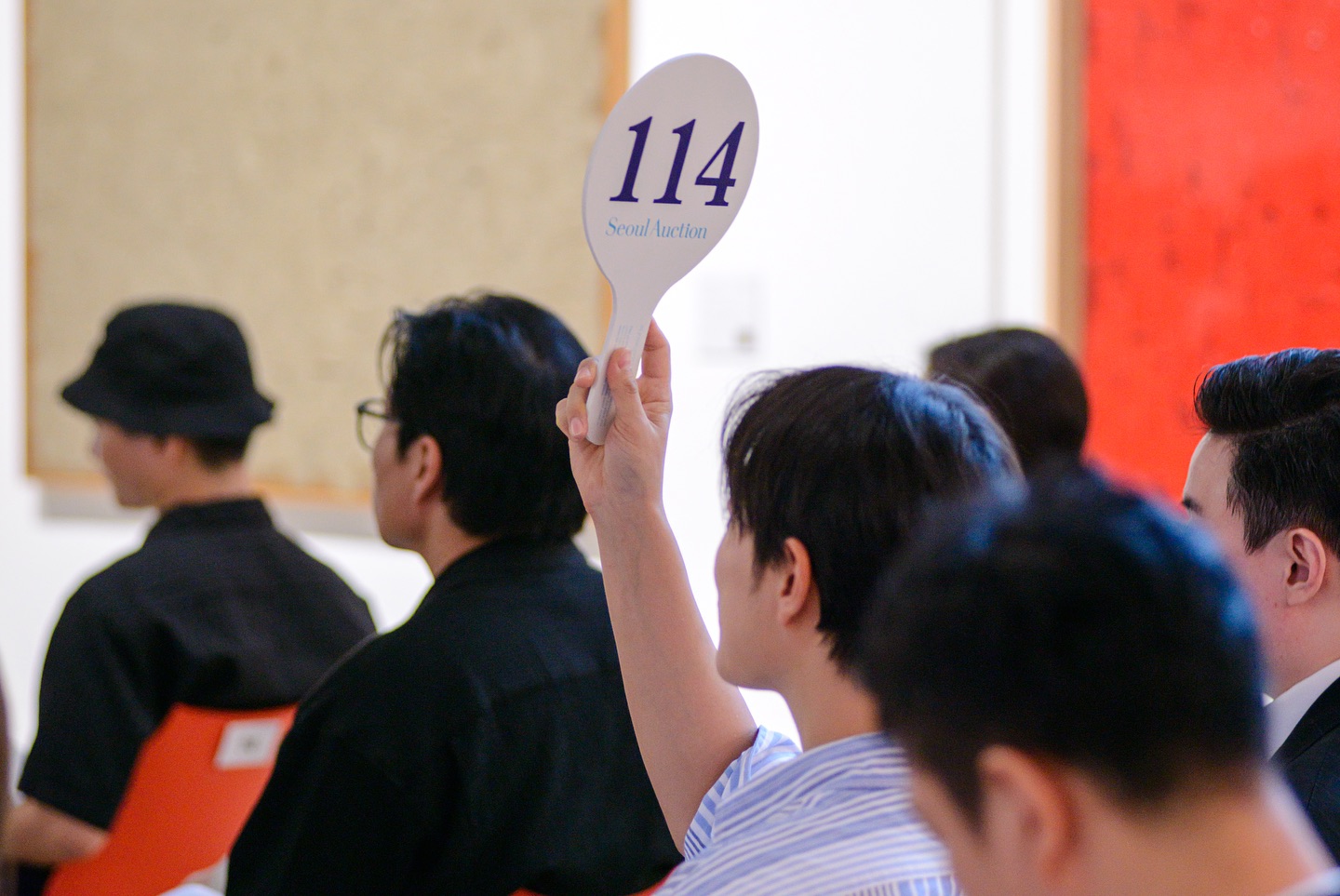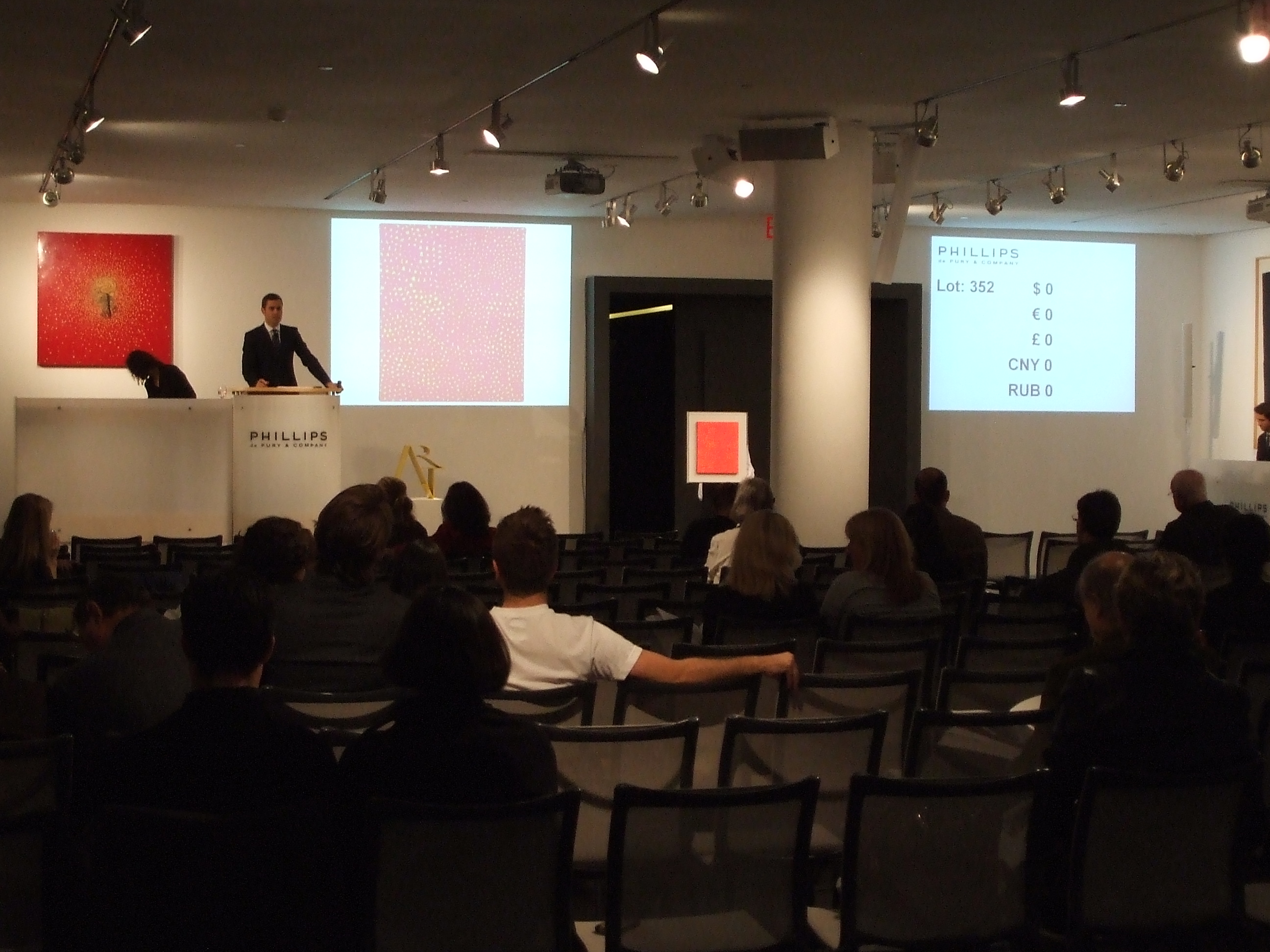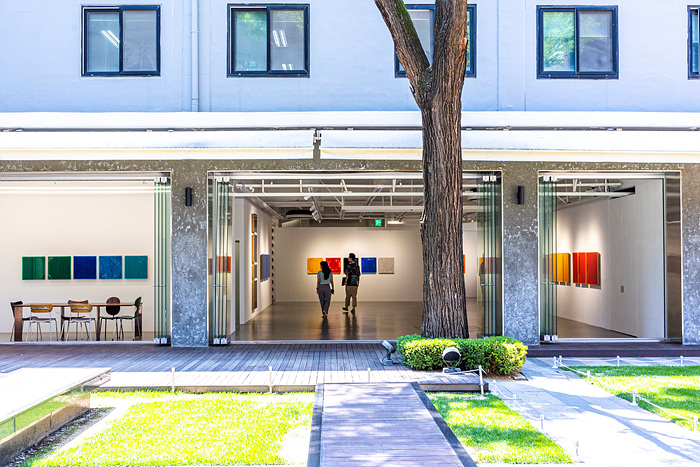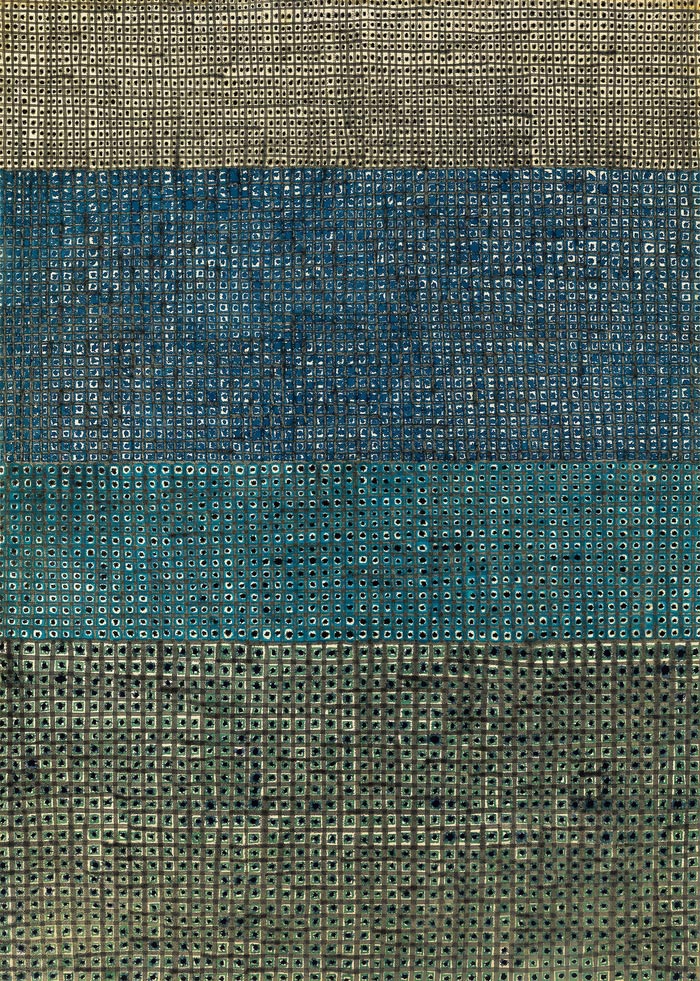The auction results for August were significantly influenced by the upcoming Frieze event in early September, creating notable changes and variables in the market. This report examines how Seoul Auction and K Auction responded to the impact of Frieze and the outcomes of their respective auctions. Through an analysis of their auction performances, we will gain insights into the dynamics of the domestic art market during this period.
| Seoul Auction
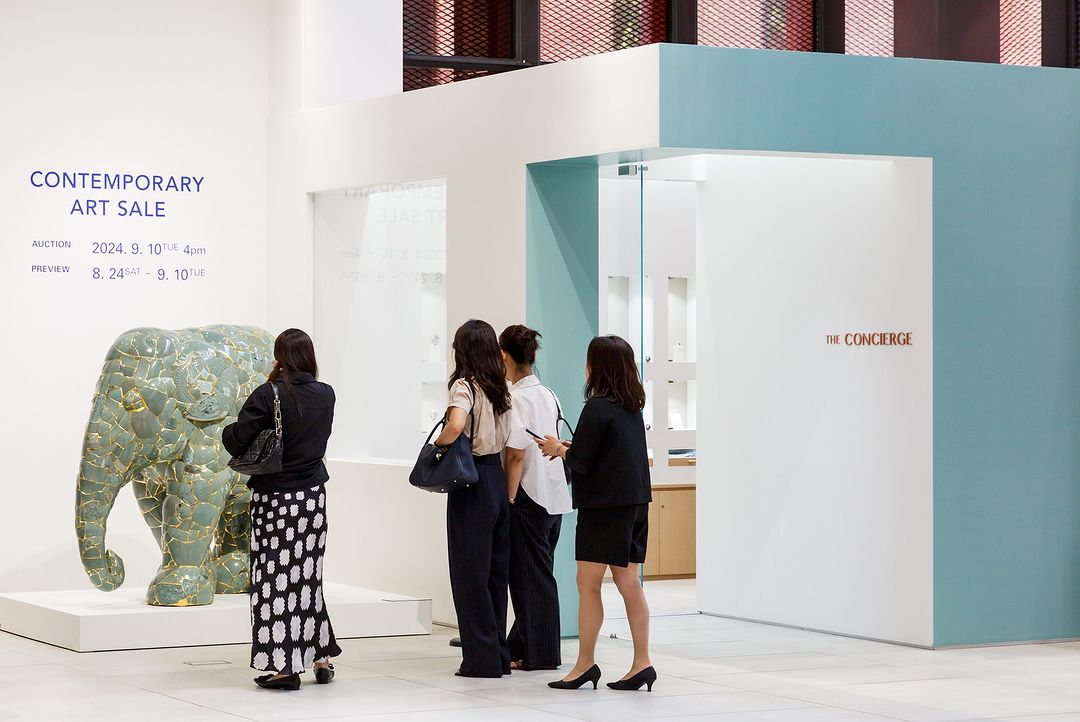 “Contemporary Art Sale” Preview at Seoul Auction. Image courtesy of Seoul Auction.
“Contemporary Art Sale” Preview at Seoul Auction. Image courtesy of Seoul Auction.In light of the Frieze event, Seoul Auction made a bold decision
to skip its major auction in August and instead hold it immediately after the
event on September 10. While recent auctions had seen a significant decline in
attendance, this time the auction hall was bustling with visitors.
However, despite the lively atmosphere, there were notable
issues: out of 78 works initially listed, 7 were withdrawn just before the
auction, and 23 were unsold, resulting in a relatively high rate of lots not
sold.
Such withdrawals typically occur when consignors, concerned
about the lack of confirmed buyers prior to the auction, decide to pull their
works due to potential negative impacts on their value.
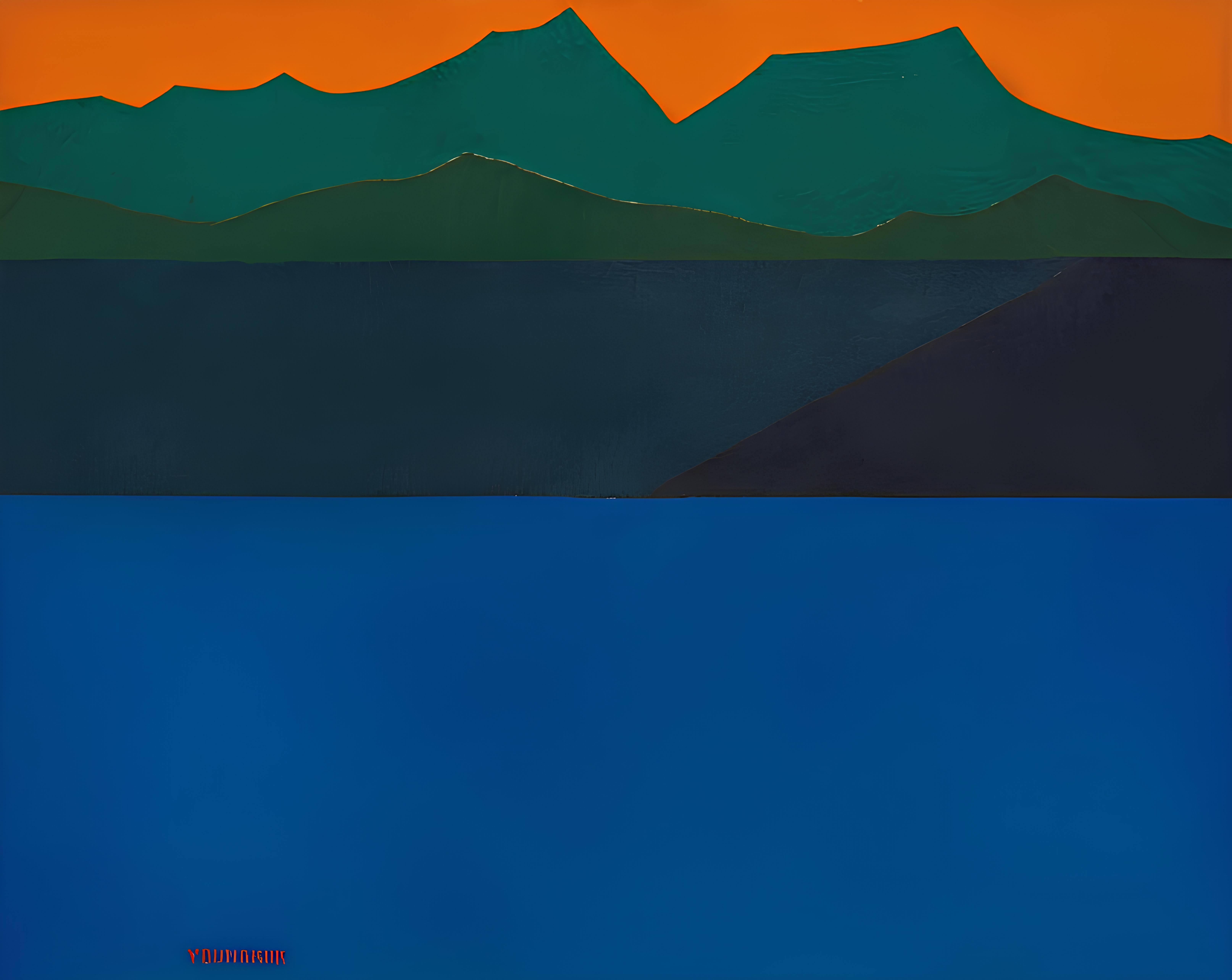 Yoo Youngkuk, Work, 1985 ©Seoul Auction
Yoo Youngkuk, Work, 1985 ©Seoul AuctionThe withdrawn pieces included works by prominent artists like Ha Chong-hyun, Yoo Youngkuk, Yoshitomo Nara, Yayoi Kusama, and Ugo Rondinone. These were significant pieces that could have potentially boosted profits, leading to disappointment among attendees and stakeholders.
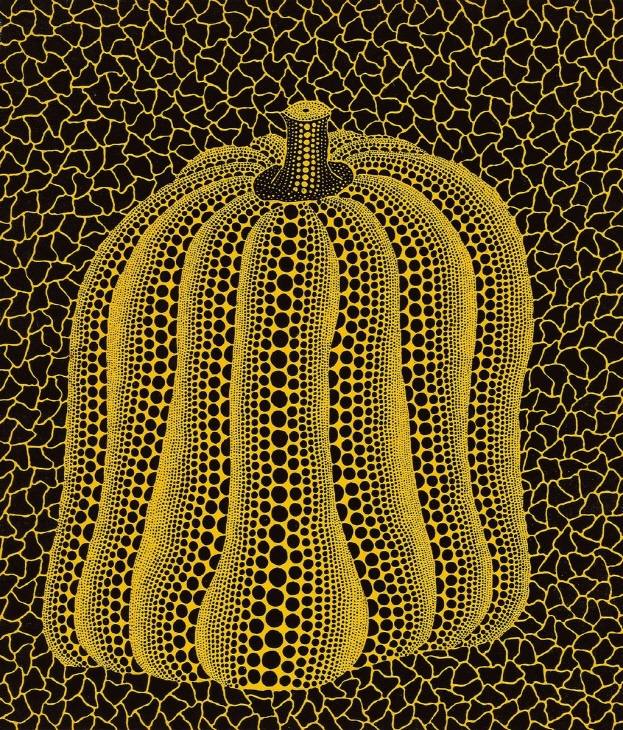
Yayoi Kusama, Pumpkin, 1990 ©Seoul Auction
The highest-selling piece at the recent auction was Yayoi
Kusama's 10F Pumpkin, (1990), which sold for 2.9 billion KRW. This follows the sale
of Kusama’s golden Pumpkin, for 13.5 billion KRW during a private sale in the Frieze period,
allowing Seoul Auction to maintain its prominence and high profitability.
Kusama's pumpkins generally command high prices due to factors
such as color, shape, size, and creation date. In this case, the combination of
the iconic yellow color, the asymmetrical design, and the smaller size likely
contributed to its final sale price of 2.9 billion KRW.
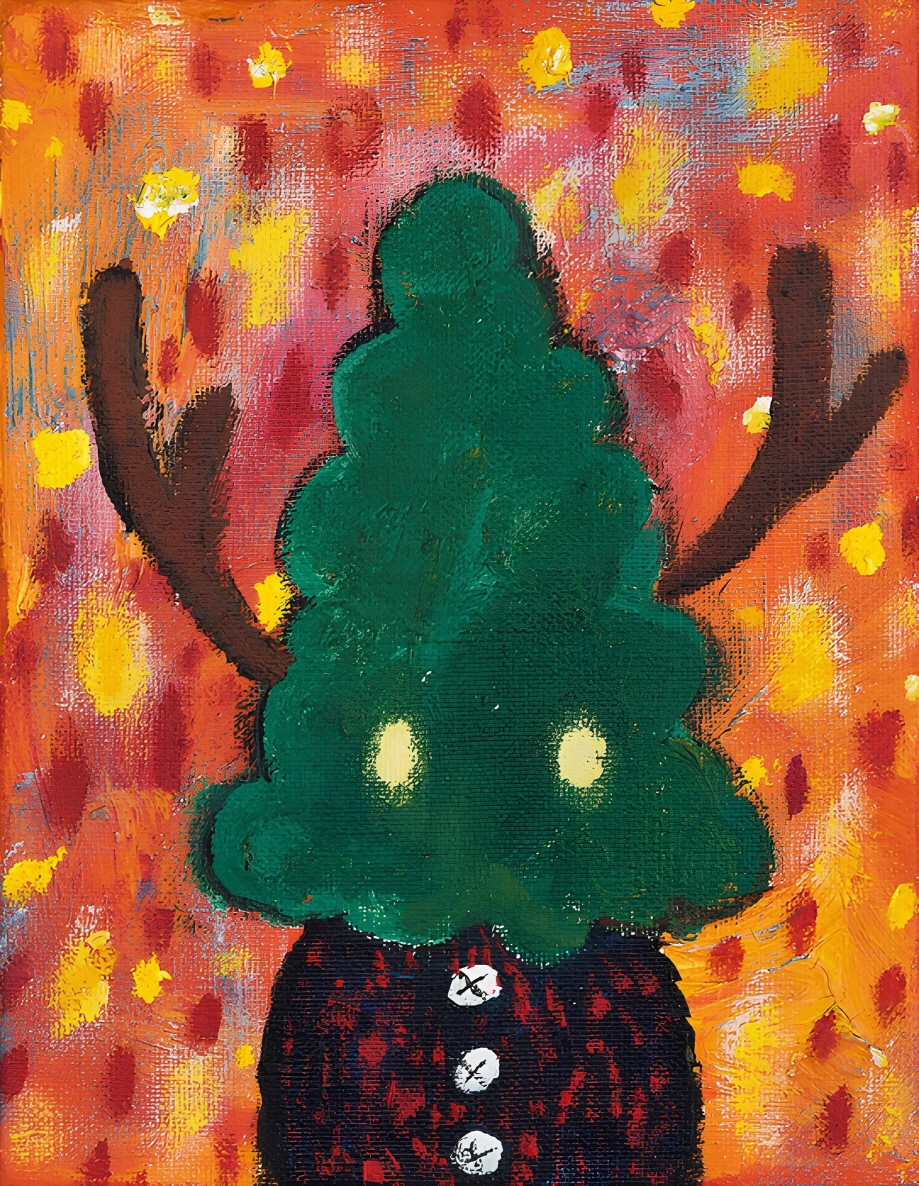 Yuichi Hirako,
Nonchooser 08, 2021 ©Seoul Auction
Yuichi Hirako,
Nonchooser 08, 2021 ©Seoul AuctionIn addition, Yuichi Hirako's works drew attention due to intense competition during the auction. Known for his fairy-tale forest characters, Hirako was recently featured prominently by Gallery Baton at their Frieze booth and also held a solo exhibition. His auction piece started at 8 million KRW and sold for 15.5 million KRW, surpassing the upper estimate of 12 million KRW.
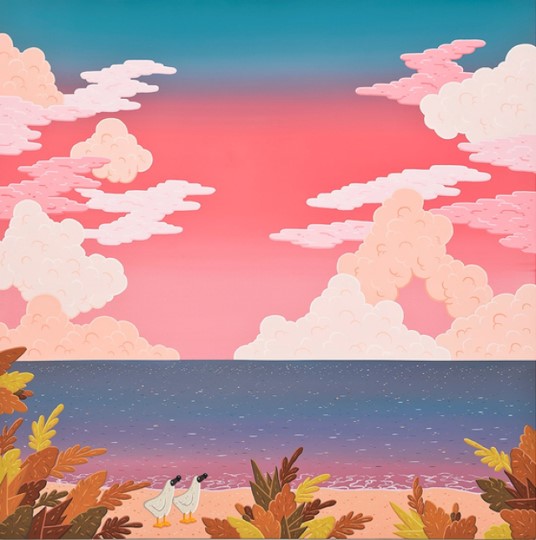
김선우, 〈Sunset Beach〉, 2021 ©서울옥션
Works by Chun Kwang Young, Lee Bae, and Kim Sunwoo showed steady
popularity at the auction. Chun Kwang Young, who continues to gain
international acclaim, had three pieces in this auction. Notably, Lot 7, the
green Aggregation 21-SE064 (2021), sold for 72
million KRW, exceeding the upper estimate and approximately doubling the lower
estimate.
Kim Sunwoo’s work started at 20 million KRW and sold for 42
million KRW after competitive bidding. Meanwhile, all five pieces by Lee Bae
were sold, indicating his enduring appeal.
The auction concluded with a sell-through rate of 67.6% and a
total sales amount of 6.28 billion KRW. Thanks to the Frieze event, the auction
results were relatively strong, significantly outperforming the lower-value
works featured in July’s major auction. Additionally, future major auctions are
expected to shift from the end of the month to the beginning, likely
maintaining this positive momentum.
| K Auction
In contrast to Seoul Auction, K Auction held its major auction in August without interruption. A total of 122 works were offered, with 6 withdrawn and 75 sold. The withdrawn pieces included high-value works by Lee Ufan, Yun Hyong-keun, and Ha Chong-hyun, priced between 200 million and nearly 500 million KRW. This reflects the ongoing market trend where high-value artworks struggle to sell. Despite this, K Auction achieved a total sales amount of 2.9 billion KRW and a sell-through rate of 64.44%, which is in line with its typical major auction results.
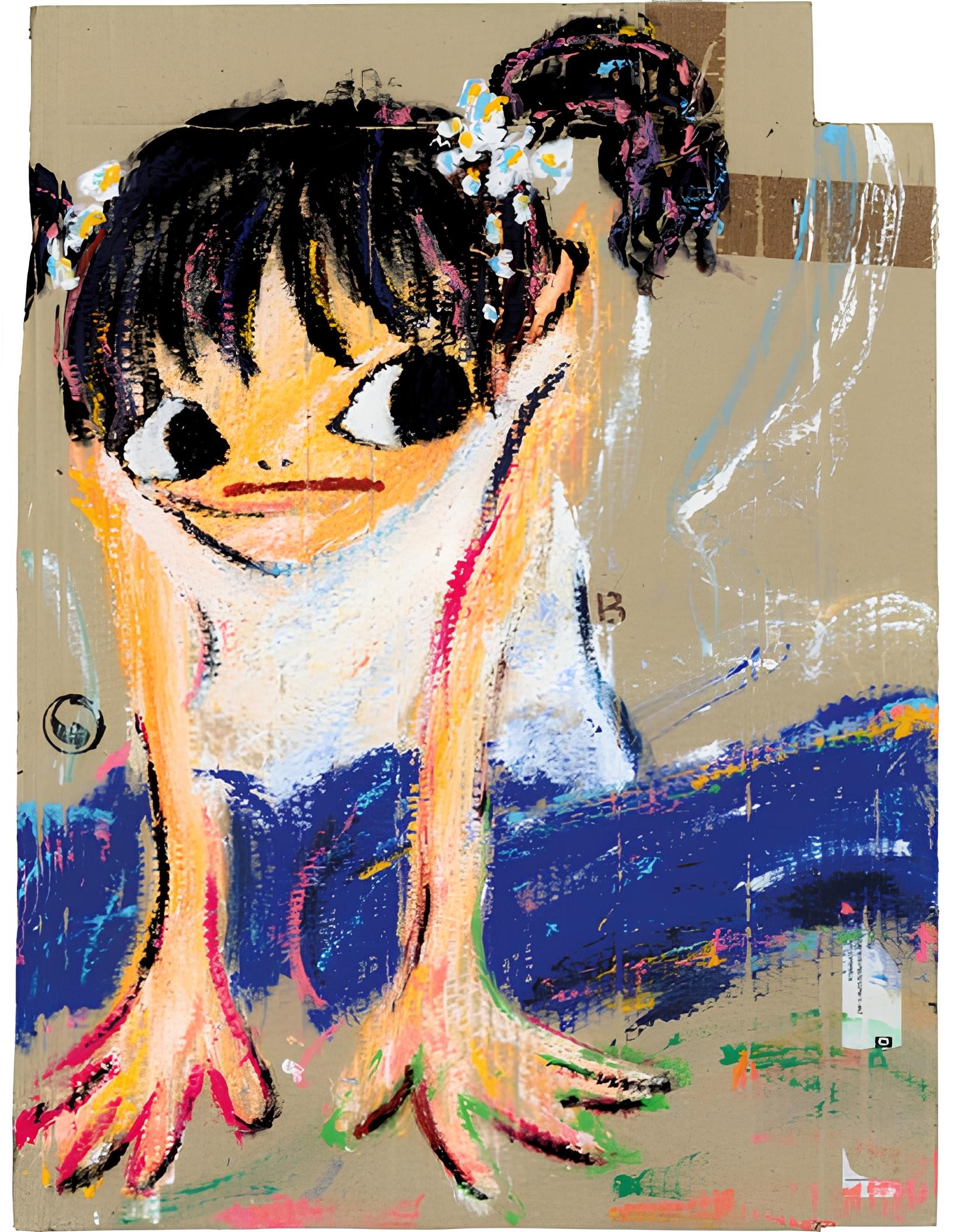 Ayako Rokkaku,
Untitled, 2006 ©K Auction
Ayako Rokkaku,
Untitled, 2006 ©K AuctionDespite a significant number of unsold works, several pieces
found new owners through competitive bidding. Notably, the auction began with a
work by Lee Bae, a charcoal drawing on paper from 2020 that started at 8
million KRW and sold for 24 million KRW—three times its starting price.
Continuing this momentum, Joung YoungJu's 10F piece also sold
for 30 million KRW, double its starting price of 15 million KRW. In addition to
these, works by Choi YoungWook, Lee JinWoo, and Ayako Rokkaku sold for
significantly higher amounts of 31 million KRW, 42 million KRW, and 52 million
KRW, respectively.
Starting from Lot 101, the Korean traditional art segment
experienced more competitive bidding than modern works. This auction
highlighted the resilience of traditional art pieces, which tend to be less
affected by market fluctuations due to their solid fan base. Lot 103, Jinju
Pond in Mt. Geumgang by Huh Gun, began at 4.5 million KRW and,
due to fierce competition, soared to 32 million KRW—an increase of nearly seven
times. Similarly, Nam KyeWoo's Butterflies started at
5 million KRW and sold for 13.5 million KRW.
Shin YoungBok's work Modern Hangul
Calligraphy started at just 3 million KRW but impressively
sold for 15 million KRW, five times its lowest estimate. While it didn't exceed
upper estimates, other competitive pieces included Landscape
from the Jeon Gi, which sold for 30 million KRW, Lee WonChan's Tiger at
45 million KRW, and Kim Gu's Calligraphy at 19.5
million KRW.
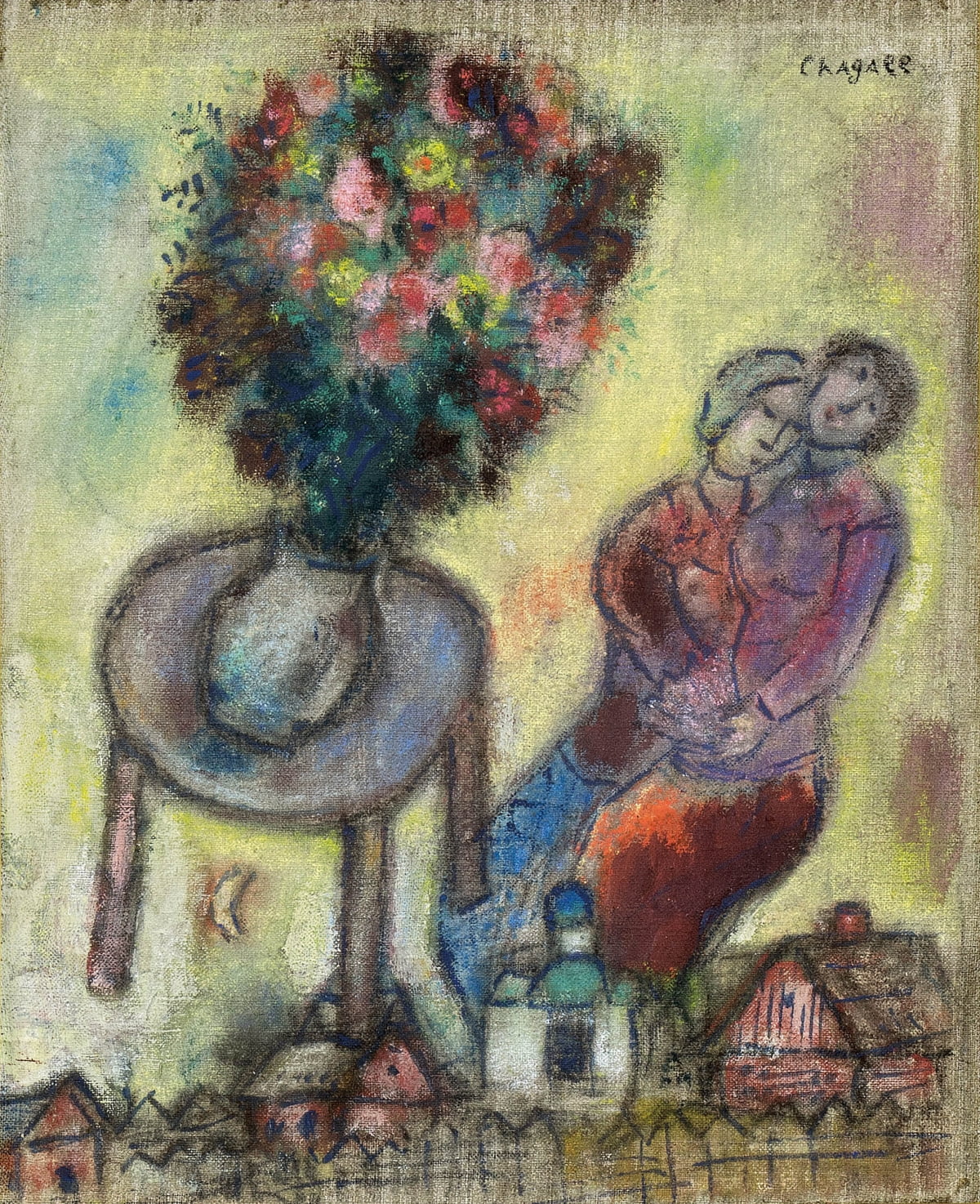 Marc Chagall, Les
Amoureux, 1935 ©K Auction
Marc Chagall, Les
Amoureux, 1935 ©K AuctionThe highest-selling piece at this auction was Marc Chagall's Les Amoureux (circa 1935), which was sold for 380 million KRW. This marked the first time Chagall's original works were featured in a domestic auction this year, making it a rare addition. Notably, this piece was previously owned by Chagall's daughter, Ida Chagall, adding significant historical value.
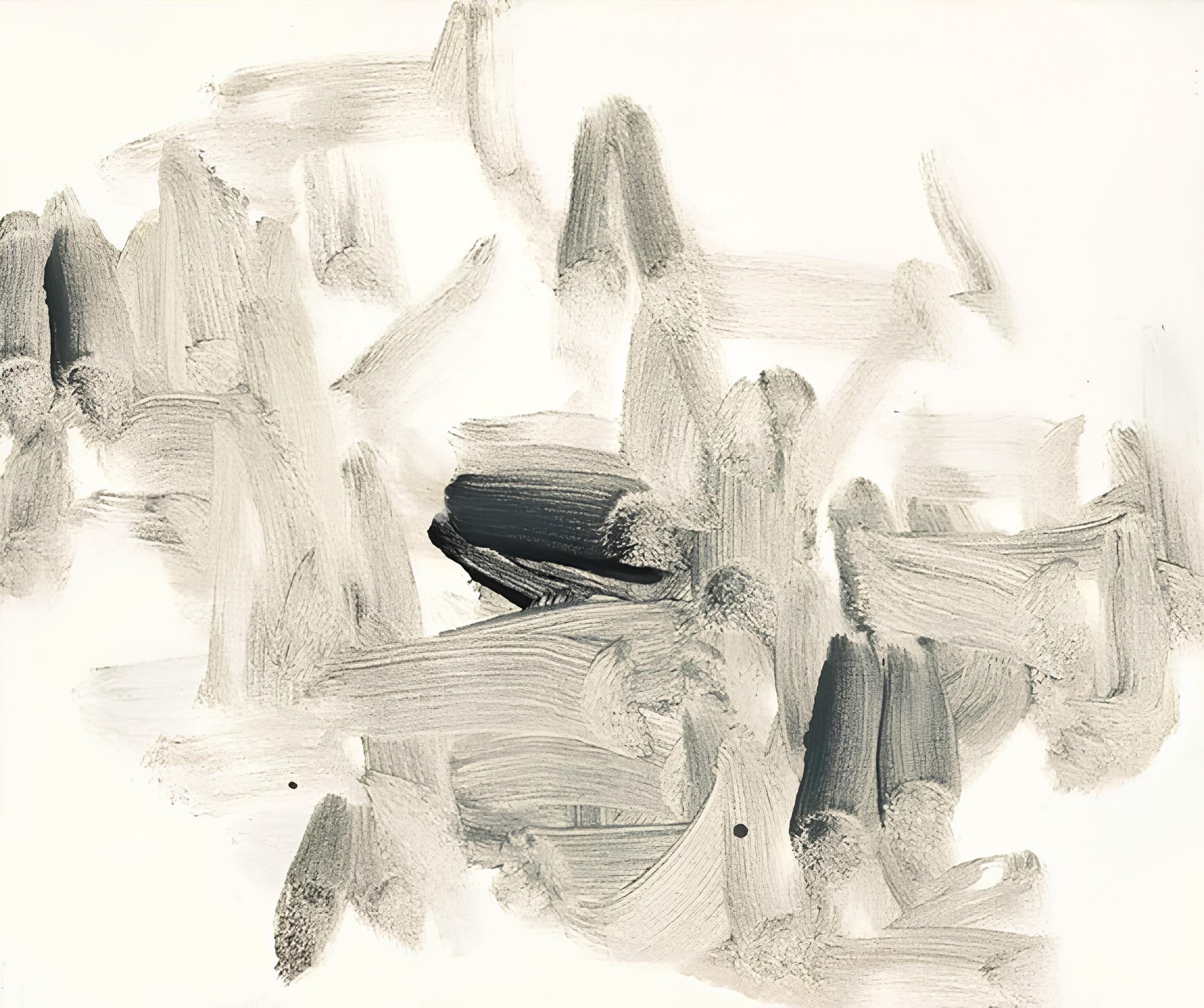 Lee UFan,
With Winds, 1990 ©K Auction
Lee UFan,
With Winds, 1990 ©K AuctionAdditionally, Lee UFan's 20F With Winds (1990) and Kohei Nawa's Pixcell-Ram Skull (2020) sold for 280 million KRW and 135 million KRW, respectively, contributing to the overall increase in auction sales.
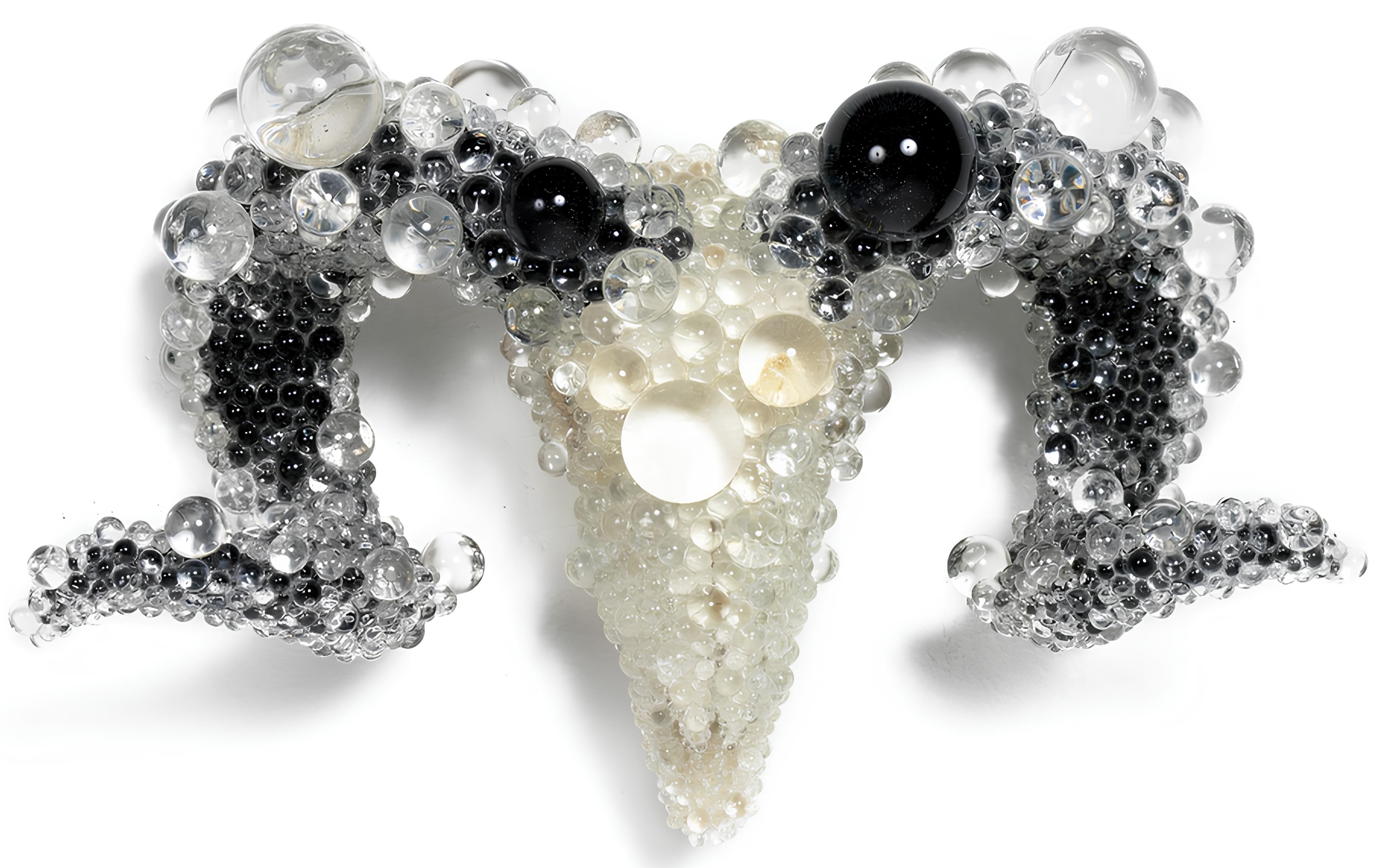 Kohei Nawa,
Pixcell-Ram Skull,
1990 ©K Auction
Kohei Nawa,
Pixcell-Ram Skull,
1990 ©K AuctionThe rise in competitive bidding can be attributed to several factors. First, with Seoul Auction moved its major auction to early September, K Auction captured the spotlight and interest during this period. Additionally, while some bidders are focused on purchasing works at Frieze, there has been a growing number of buyers eager to acquire quality pieces that emerge during the Frieze period.



